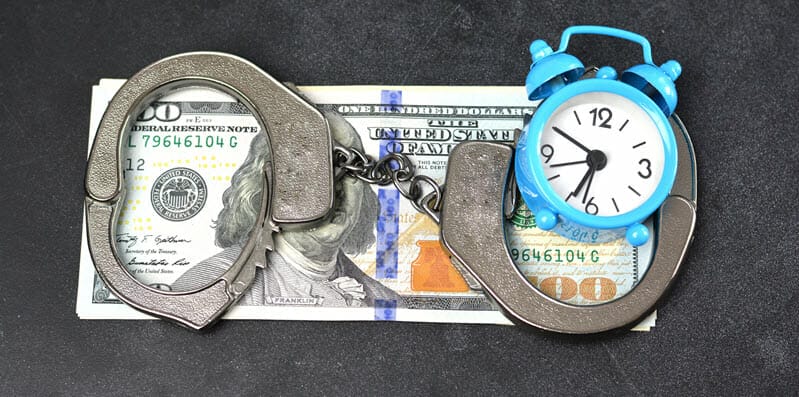
- Felonies
- *
- Misdemeanors
- *
- Drug/Narcotics Violations
- *
- Sex Offenses
- *
- Gun / Weapons Violations
- *
- Robbery
- *
- Burglary
- *
- Assault
- *
- Theft
- *
- White Collar Crimes
- *
- Domestic Assualt
- *
- Property Damage
- *
Understanding the Bail Reduction Process
No matter the severity of their crime, every defendant has the right to a bail hearing. At this hearing, a judge hears from both sides and reviews the evidence. The judge will review the defendant's past criminal record and determine their flight risk.
Are you wondering how to get a bond reduced? The most common way to have a bond reduced is through a bond reduction hearing. At the hearing, the defendant’s attorney will argue to the court why the bond should be reduced. The court will then make a decision. The defendant might also be released on their own recognizance, or might hire a bondsman to post a surety bond. The bond could also be reduced to having to pay only 10% of the full amount.
It is up to the judge to set the bail amount in most cases. Some crimes have specific bail amounts attached to them (bail schedule), but even in these cases, judges have some leeway. The judges can also decide if the defendant can use a bail bondsman to post a bail bonds.
Once bail has been set, this does not mean the amount is set in stone. All defendants have the right to request a bail reduction hearing. This bail reduction hearing allows a defendant's attorney to argue for a lower bail amount that is more affordable for their client.
If a friend or loved one has a high bail amount, they need to be aware of the steps involved in getting this amount reduced. A Motion for bail Reduction is typically filed in court when a defendant cannot afford to put up the money to get out of jail and is awaiting trial. While these arguments are not always successful, judges sometimes change their minds at the bail reduction hearings.
Different Types of Bonds
A judge will determine the type of bond for a defendant facing criminal charges. The following offers information on the different types of bonds that may be available to a defendant.
- Personal recognizance bonds do not require any payment. The judge will require the defendant to promise to show up for all court dates. This is also referred to as being released on your own recognizance.
- As the name suggests, cash bonds require a defendant to put up the full bail amount in cash. Hiring a bondsman is not allowed.
- Regular bonds allow defendants to hire a bail bondsman to get them out of jail. There is a fee involved for these services, which is not refundable.
- Property bonds allow defendants to put up property for their bond amount and get out of jail.
What Happens at the Bond Reduction Hearing?
The bail reduction hearing, or bail hearing, allows both sides to argue their points. The defense attorney will attempt to present new evidence and information that will change the judge's mind and have the bail reduced.
It will be the judge's decision if there will be a bail reduction or if the bond will remain at the amount originally ordered. The judge will also decide the bail conditions. The following are some factors the judge will consider when deciding on the bond reduction.
- The involvement of the defendant in the community
- The defendant's prior criminal record
- The flight risk of the defendant
- The financial ability of the defendant to post bail
It is important to note that some crimes require a statutory notice period before a bond reduction hearing will be scheduled (as in the case of capital crimes). Every case is different, so defendants must understand the law and their rights regarding filing for bond reduction. It is best to seek legal representation
Need a Bail Bondsman – We are Here to Help
Getting arrested is stressful enough, but add in the aspect of having to post bail, and the tension levels rise exponentially. We are here to help you understand your rights and options for hiring a bail bondsman and offer a free consultation. Contact us now to get the expert and compassionate assistance you need for yourself, a loved one, or a friend.







